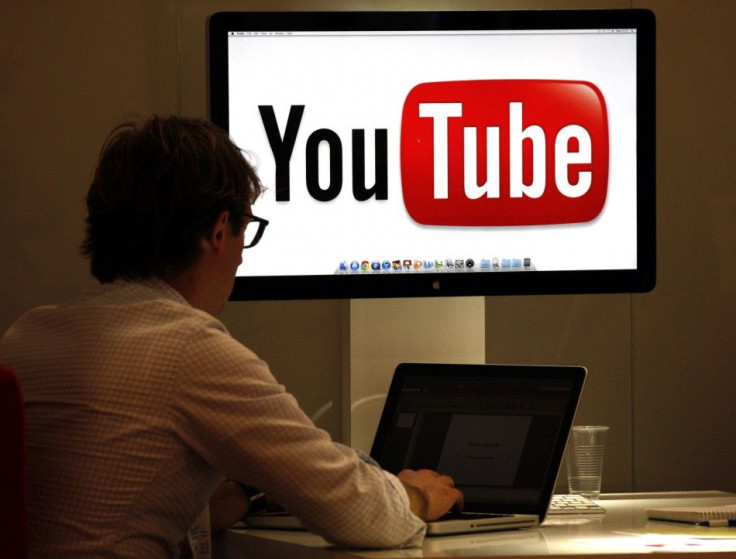All The Sh*t That People Say

People say all different types of sh*t, but never before has it been documented by so many Americans. After a YouTube video was posted on Dec. 12, 2011, all the sh*t that people say started being logged across the web. The internet turned into a cacophony of ethnic stereotyping and generalizing--and most people love it.
In the first short film, titled Sh*t Girls Say, one man, dressed as a woman, rattles of several clichés and mannerisms he believes that are only associated with women. The release of the video was well choreographed, having been released under the YouTube channel with an identical name and a Twitter handle to boot. Graydon Sheppard, the lead actor of the video, and Kyle Humphrey, soon became the nucleus of an internet phenomenon.
We started just talking about things that are kind of specific to women that they say, and the first thing that we said was, 'Could you pass me that blanket?' and we said that would be a funny Twitter feed, Sheppard said. Eventually, [the feed] started going well and I'm a filmmaker and I thought it would be a great project to do a little comedy short to bring the tweets to life.
The video spread like wildfire, collecting more than 4 million views within its first week of being posted. Social media sites like Reddit, Facebook and Twitter were plastered with the video, and not long after that, amateur videographers around the country were logging the other type of sh*t that they frequently hear.
The first response video raised the ante on stereotypes and misogyny. Sh*t Black Girls say was published just four days after the original and quickly gathered several millions of viewers and favorable reviews, at least, according to the YouTube likes and dislikes bar.
Sh*t Black Girls Say was clearly inspired by the original, having many of the quips delivered in similar settings, such as at the park, on the couch and at a bar. Small adjustments were made to the scenes such as a bag of Cheetos rather than potato chips and alterations of mannerism on the phone.
The man in drag, an established stand-up comedian Billy Sorrells, kept the meme momentum moving forward in this strange phenomenon.
But the dude-dressed-as-a-woman-acting-stereotypically bonanza didn't end there. Roughly three weeks later, not to be outdone, there was another video mocking the women of another ethnicity--this time being Hispanics. In Sh*t Spanish Girls Say, the phones, couch and bar room settings made an appearance once again. In similar fashion to the videos before it, Spanish Girls was meticulous about what snack food was eaten and the other items that were presented.
At some point, young comedians around the country could not resist making an overtly stereotypical video about their own ethnicity or cultural background. People were no longer interested in the sh*t that girls of a certain kind were saying. Instead, the sh*t that people of all colors and places were being made fun of.
Sh*t Nobody Says, Sh*t New Yorkers Say, Sh*t Asian Dads Say, Sh*t People Say in LA, Sh*t Gay Guys Say, Sh*t White Guys Say To Brown Guys, Sh*t Guys Say, Sh*t Asian Moms Say, Shit Fat People Say and presumably many, many more videos all have over 1 million views on YouTube. It's fair to say that sh*t people say has hit internet meme status, and it's also fair to say that people love stereotype jokes.
So what does all this sh*t mean?
The sh*t that people say meme is a testament to the self-aware, progressive minds of the 'aught' generation. These 'sh*t' videos are not just 21st century equivalents of derogatory blonde jokes. They're often a recognition of the cultural idiosyncrasies that define our complicated, ethnic perceptions. By confronting these stereotypes, these satiric videos are also helping to defeat such damaging preconceptions.
In a study published by the Journal of Personality and Social Psychology by Indiana University, scholars discovered that while stereotypes could negatively impact an individual's academic performance and thereby negatively impact that person's ethnicity, stereotypes can also be used an empowerment tool.
In the study, women's performances on a math test did not suffer when the women are bad at math stereotype was invoked, so long as a positive stereotype, such as college students are good at math, was also invoked.
The same holds true for the prevalence of stereotyping videos: By making hilarious, favorably reviewed stereotyping videos, the comedians of each of these cultural backgrounds are empowering those that encounter similar reactions, mannerisms and clichés. They're also demystifying the stereotypes. In other words, humor heals.
© Copyright IBTimes 2025. All rights reserved.





















